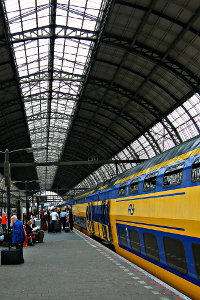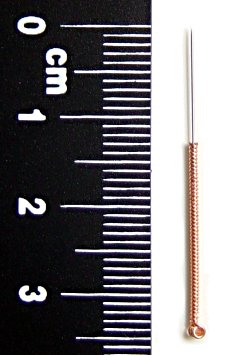
Last year, The Guardian wrote a column on how the Netherlands is a tax haven for multinationals. In fact, if you Google ‘Netherlands’ and words like ‘tax avoidance’ or ‘tax haven’, you’ll see how gladly the country enables companies like Amazon, Google and Starbucks.
Back in 2002 Portugal got pissed when they calculated the insane amount of money they were losing to the Netherlands, while Dutch telly pointed out that “empty shell corporations pump 8,000 billion euro through the Netherlands”.
It’s bad enough the country’s 16.5 million residents have to deal with explaining themselves when it comes to prostitution and drugs, what we could do without is having to explain why our government wants to be the whore and pusher of corporations. Grab a hot beverage and read The central role of Dutch financing companies in tax avoidance strategies.
In the Netherlands, complex tax law constructions apparently allow companies to show losses in one or more countries to pay taxes at a lower rate in another. While most of it is probably legal, like many capitalist constructions, it screws billions of people over around the world. And the Netherlands thinks that’s ethically fine for some reason.
If you want more information, this is also a nice read from the Netherlands Comparative Law Association. The conclusion says a lot: “The Netherlands has a long-standing tradition of providing tools to address tax avoidance.”

 Dutch Rail is on a roll. Last Tuesday
Dutch Rail is on a roll. Last Tuesday  Since 2001 tax forms have had a checkbox that allowed two people living together to declare a ‘fiscal partnership’, a relationship just for tax purposes. It appears (I never looked it up before), that if you and somebody else declare a fiscal partnership you get certain tax breaks, such as mortgage interest deductions for the highest earner.
Since 2001 tax forms have had a checkbox that allowed two people living together to declare a ‘fiscal partnership’, a relationship just for tax purposes. It appears (I never looked it up before), that if you and somebody else declare a fiscal partnership you get certain tax breaks, such as mortgage interest deductions for the highest earner.  The Dutch revenue service (Belastingdienst) has announced that the winner of the Staatsloterij Jackpot will have to pay income tax over these winnings for both 2010 and 2011.
The Dutch revenue service (Belastingdienst) has announced that the winner of the Staatsloterij Jackpot will have to pay income tax over these winnings for both 2010 and 2011. Government ministers De Jager (Finance) and Middelkoop (Housing) have announced a temporary lowering of the sales tax on home make-overs from 19% to 6%.
Government ministers De Jager (Finance) and Middelkoop (Housing) have announced a temporary lowering of the sales tax on home make-overs from 19% to 6%. Next year, the sales tax on cleaning will be lowered, Treasury Minister Kees de Jager announced to parliament yesterday,
Next year, the sales tax on cleaning will be lowered, Treasury Minister Kees de Jager announced to parliament yesterday,  A judge in Haarlem ruled last month that acupuncturists who are also certified Doctors of Medicine qualify for a tax exemption that other acupuncturists must miss out on,
A judge in Haarlem ruled last month that acupuncturists who are also certified Doctors of Medicine qualify for a tax exemption that other acupuncturists must miss out on, 